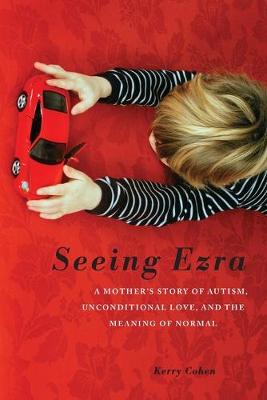
Jane
Written on Feb 20, 2016
It's really hard to be an autistic. So many times, I wished I could just tell her some things that go on in my own head as an autistic—like how easier it is, sometimes, to use as little verbalisation as possible, or how soothing being in my own space, behind my closed bedroom door, can be.
"Seeing Ezra" isn't perfect; it's charming in its own way, and I want people around me who seem to be craving to understand me to read it—only so they can [hopefully] look at an allistic mother's viewpoint with her autistic child. I struggle to properly articulate what life as an autistic person is like. I've been criticized by numerous parents, and people in general, because I am "able" to have a conversation with someone online—because I have a blog and can write and dance; because I can do things their child(ren) may "never" be able to do.
The world is not kind to autistics; we're treated as if we're children of the Devil—monsters, serial killers, pedophiles—and should be given the death penalty. Many people think we should be put on our own island, away from civilization, and "fixed" so we cannot reproduce. "Experts" look at us as if we are abnormal beings—monkeys to be studied and experimented on—and all the while, we are not permitted to be angry. Autistics are judged for being themselves—for speaking out and fighting for their rights; we're judged so, so harshly by this world when we don't fit perfectly into someone's social protocols or check boxes.
Maybe Cohen's book could help people to understand that...maybe.
I rated it 3 stars because, whilst it's amazing, it's not perfect. There are flaws, and I disagree, as an autistic myself, with much of what she says—but it's not perfect. There are grammatical and punctuation errors, and I wished so often she'd have just used "and" in place of a comma, because the diction would have been more understandable. As I read further into the book, these errors became more frequent, as if editors grew lazy. At one point, a sentence lacks a period—and you can tell, because there is a capital "T" for "The". This book would have been a much easier read in the event that it was written in a sans-serif font.
This book isn't perfect.
It doesn't need to be perfect.
Through this book, Cohen restored my faith in humanity—albeit slightly—and articulated well so many of the things I have been unable to articulate properly—because I'm autistic, because there are some things I cannot adequately wrap my brain around to understand, because I am not flawless.
I tend to avoid autistic literature and movies. I enter with the expectation to exit feeling utterly insulted and dirty. My heart broke when frustrations were taken out on Ezra; I cried with relief when I read about Ezra's dentist—he wasn't strapped down, unable to move, and/or frightened for his life like I had been for my first dental visit. His parents didn't take away his special interests or the things that brought him comfort; they didn't punish him for not eating—they attempted to seek other methods—because he wasn't doing anything wrong. Creating, developing and maintaining a relationship with an autistic person requires patience, acceptance and an open mind.
If you liked this book, I recommend the movie "Snow Cake". It has an accurate, flawless depiction of an autistic woman.
